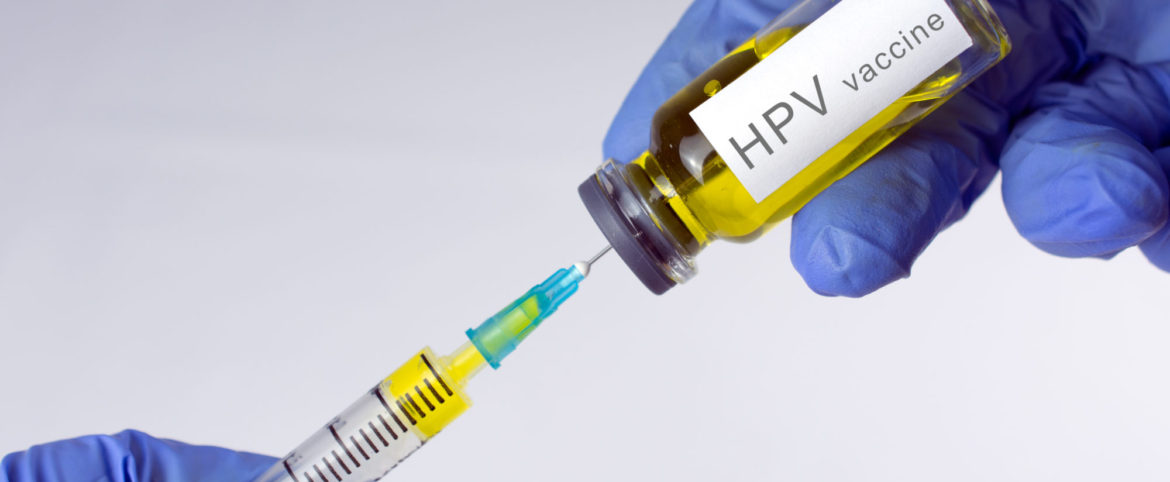We offer private HPV tests, HPV treatment and HPV vaccination in our discreet and convenient clinics in London, UK.
The HPV vaccine can protect against wart virus infection and help prevent cervical cancer. Our clinics in Central London offer safe and effective private HPV vaccination, to reduce your risk of developing cervical abnormalities and cancer.
Who needs the HPV vaccination?
The HPV vaccine can protect against infection with certain high-risk strains of the human papilloma virus that may increase the risk of developing cell abnormalities and cervical cancer.
HPV is very common- but the infection is often asymptomatic and can be transferred easily during sexual contact. HPV infections can be found on the fingers, the genitals and in the mouth and can be spread by any form of touching. For this reason, immunisation should be done early, ideally before a woman becomes sexually active. The HPV vaccine has been shown in research to be valuable for women between the ages of 16 and 26 and also in children from the ages of 9 to 15.
The HPV vaccine won’t treat existing HPV infections. However, any woman that has already been diagnosed with HPV, or has been treated for cervical abnormalities may still benefit from immunisation. That’s because there are different types of HPV. If a woman is only positive to one out of HPV-18 or HPV-16, the vaccine may reduce the risk of new infections by the other high-risk strain.
The HPV vaccine
The HPV vaccine used at our clinics has been researched widely and is the vaccine used in the NHS immunisation programme. It protects against four of the most high-risk strains of HPV: HPV-6, HPV-11, HPV-16 and HPV-18. These types are thought to cause more than three-quarters of cervical cancers in the UK and nine out of ten cases of genital warts. So, prompt and effective immunisation can help protect young women from developing these in the future.
Are there any problems with having the HPV vaccination?
The HPV vaccine is generally very safe and problems are usually mild and self-limiting. However, side-effects can happen with any vaccination. In a study looking at 11,000 women, the most common side effects were:
- A raised temperature for a day after administration, this can usually be eased with paracetamol.
- Pain and swelling around the injection site.
- Bruising or itching around the injection site.
- Nausea and sickness.
- Pain in the arms, hands, legs or feet.
Very rarely, a woman may have an allergic reaction to the vaccine. You should let the clinic know if you have any known allergies or if you are feeling unwell following your injection.
Who should not have the HPV vaccine?
The safety of the vaccine is untested in pregnant women. For this reason, we always perform a pregnancy test before administering the vaccine in any woman that is sexually active,
HPV vaccination at The Colposcopy Treatment Clinics
The HPV vaccine is available at all of our Central London clinics. Vaccination is performed by experts, in an efficient, comfortable and stress-free environment.
Anyone who is concerned about HPV and their gynaecological health can contact our supportive and well-informed team for advice or to make an appointment for a private smear, HPV testing or HPV vaccination.
Women between the ages of 16 and 26 can be treated, however parents wishing to vaccinate a child between the ages of 9 and 16 will be referred to another specialist, because children are not treated at our clinics.
Is the HPV vaccine effective?
Research studies indicate that the HPV vaccine provides excellent protection against development of pre-cancerous cells in the cervix. The vaccine may be almost 100% effective for the prevention of the high-risk strains of the virus HPV-16 and HPV-18 and the cervical abnormalities they cause. However, this is when the vaccine is administered in virgins, before there has been any sexual contact. In other women, whose HPV status is not known, there is an overall 39% protection against CIN caused by HPV types 16 and 18.
Around three-quarters of all cancers of the cervix are caused by the HPV viruses 16 and 18. So, it’s important to remember that it is still possible for a woman to develop cervical cancer even though they have been effectively immunised.
What happens in HPV vaccination?
Women receive three separate injections of the HPV vaccine into their upper arm. This immunisation schedule ensures you are fully protected against the high-risk strains of HPV.
Follow-up
All of our clinics perform HPV testing prior to starting a course of the HPV vaccine. If this is positive, or there are any abnormalities on your smear test you may need a consultation with Mr Thomas Ind for assessment and advice, or a colposcopy may be arranged to examine your cervix in more detail.
It is essential that a woman still has regular smear tests following vaccination. The vaccine reduces the risk of cervix cancer, but does not completely prevent it. The team at our clinics can answer all your questions and arrange for regular private smear testing to maintain your health and wellbeing.
Find out more:


